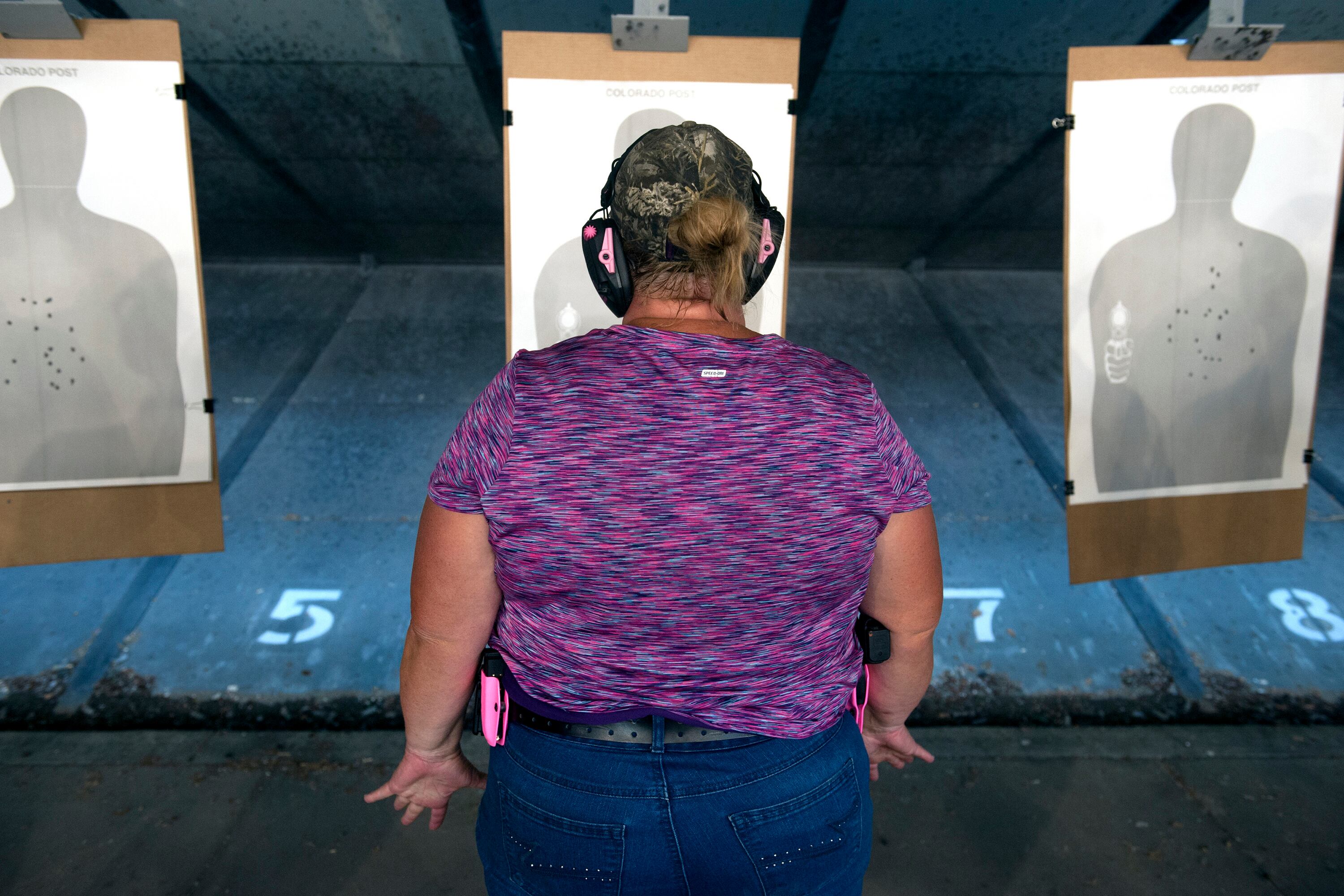Sign up for Chalkbeat Tennessee’s free daily newsletter to keep up with statewide education policy and Memphis-Shelby County Schools.
Legislation to let some public school teachers carry handguns advanced Tuesday in the Tennessee Senate as the Republican-controlled legislature quashed new attempts to tighten the state’s lax firearm laws following last year’s mass school shooting in Nashville.
The bill, which still faces votes before the full Senate and House, would let a teacher or staff member with an enhanced permit carry a concealed handgun at school after completing 40 hours of certified training in school policing at their own expense, as well as passing a mental health evaluation and FBI background check.
The local district and law enforcement agency would decide whether to let faculty or staff carry a gun under the bill co-sponsored by Sen. Paul Bailey of Sparta and Rep. Ryan Williams of Cookeville, both Republicans.
But parents would not be notified if their student’s teacher is armed, which runs counter to the GOP’s emphasis on parental rights and notification on education matters such as curriculum and library materials.
“The director of schools, principal, and the chief of the local law enforcement agency are the only ones notified of those permitted to carry,” Bailey told senators, “and they are not to disclose if someone is or is not permitted to carry on school grounds.”
The 7-1 vote in the Senate Judiciary Committee comes as Tennessee’s legislature continues to pass measures aimed at fortifying school campuses rather than restricting gun access in one of the most gun-friendly states in America.
Last year, after a shooter killed three children and three adults at a private Christian school in Nashville, the legislature allocated $230 million and passed laws to upgrade school facilities, pay for a school resource officer for every school, and ensure school doors remain locked.
Gov. Bill Lee later called lawmakers back for a special session on public safety. But none of the bills that passed specifically addressed concerns about easy access to guns that were raised by the March 27 shooting at Nashville’s Covenant School, where a 28-year-old intruder, who police said was under a doctor’s care for an “emotional disorder,” used legally purchased guns to shoot through the glass doors.
This year, bills moving through the legislature would require age-appropriate gun safety training for school children as young as kindergarten; change school fire alarm protocols to take into account active-shooter situations; create a pilot program to give teachers wearable alarms; increase safety training for school bus drivers; and set guidelines to digitize school maps so first responders can access school layouts quickly in an emergency, among other things.
Meanwhile, Democratic-sponsored legislation to restrict gun access by broadening background checks and promoting secure firearm storage have met swift defeats. Earlier on Tuesday, one House panel dismissed, without discussion, a bill seeking to ban semi-automatic rifles in Tennessee.
School safety is one of the top three education concerns of Tennessee parents, but significantly fewer parents agree that schools are safer when teachers are armed, according to the latest results in an annual poll from the Vanderbilt Center for Child Health Policy.
Sen. London Lamar, a Memphis Democrat who voted against the measure, said more guns aren’t the solution to stopping gun violence.
“I do not think that it is the responsibility of teachers in our state, who have taken the oath to educate our children, to now become law enforcement officers,” she said.
Lamar also expressed concern about one provision to shield districts and law enforcement agencies from potential civil lawsuits over how a teacher or school employee uses, or fails to use, a handgun under the proposed law.
Organizations representing Tennessee teachers and school superintendents prefer policies that place an officer in every school over any that could arm faculty.
But Bailey told the Senate panel that nearly a third of the state’s 1,800-plus public schools still don’t have a school resource officer, despite an influx of state money to pay for them.
Law enforcement groups have struggled to recruit enough candidates because of inadequate pay, occupational stress, and changing public perceptions about the profession.
“Everybody’s got a shortage right now, but it’s been going on for years,” said Lt. Kyle Cheek, president of the Tennessee School Resource Officers Association.
Cheek, who oversees school-based deputies in Maury County, said equipping a teacher for school policing would require extensive training beyond a basic firearms course. And it would raise other concerns too.
“Who takes care of the teacher’s class if they’re going to check out a security issue?” he told Chalkbeat. “It’s a huge responsibility.”
The advancement of Bailey’s Senate bill means the measure likely will face votes this month in the full Senate and House before the legislature adjourns its two-year session.
The House version cleared numerous committees last year, but Williams did not pursue a vote by the full chamber after the Covenant tragedy prompted gun control advocates to stage mass protests at the Capitol.
You can track the legislation on the General Assembly’s website.
Marta Aldrich is a senior correspondent and covers the statehouse for Chalkbeat Tennessee. Contact her at maldrich@chalkbeat.org.





